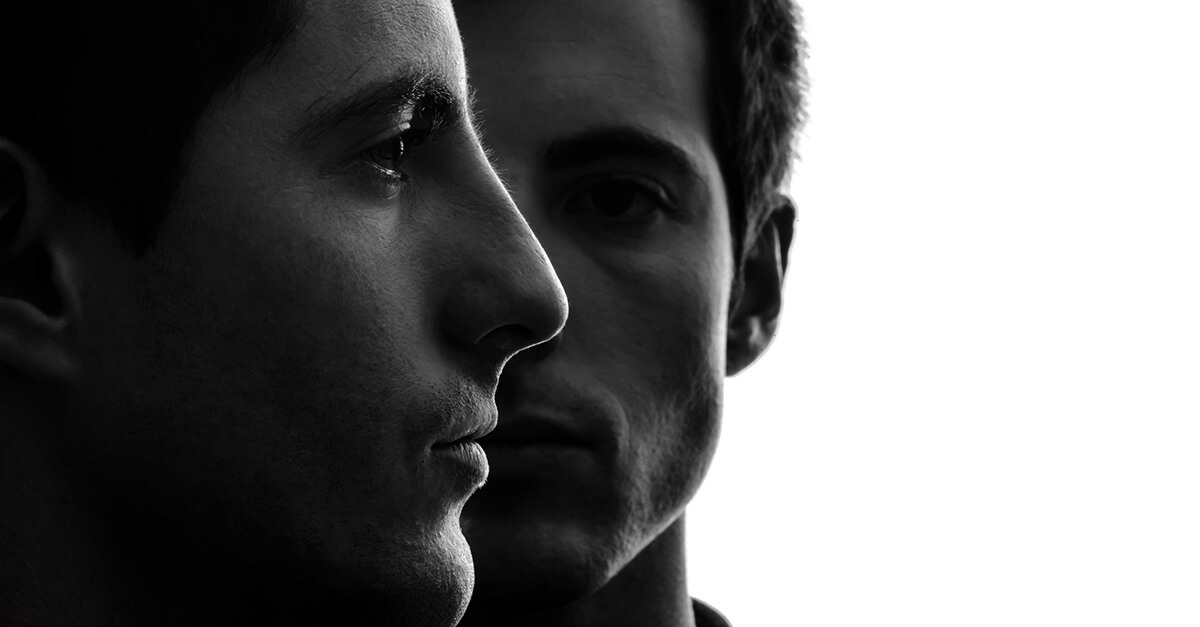Bipolar disorder and schizophrenia: key differences

Bipolar disorder and schizophrenia are different types of mental health conditions that affect a person’s behaviors, thoughts, and emotions. The two disorders share some similarities, which can make it challenging to distinguish between them.
From the community: “Most of us now call mental illnesses "brain disorders" (mood or thought disorders). These are real, biological problems in our brains that should be taken as serious as cancer, diabetes or heart disease. Doctors do their best with all diseases to treat using medicines and other treatments. In mental health they use therapy and part of what we need is support - many times people are comforted by religion.I have a mood disorder and you may have a thought disorder. My moods can change every few months. People with thought disorders, I am told, have times where the are not thinking as clearly as they should and might have delusions (i.e. that some person is out to get them, or that someone they know is God, etc.)” – Inspire member
What is bipolar disorder?
Bipolar disorder is a mood disorder that causes periods of intense energy and happiness (mania), alternating with periods of low energy and lethargy (depression). More than 3 million Americans have bipolar disorder, which was once called manic depression.
Someone in the manic phase of bipolar disorder may have symptoms like:
euphoric feelings like being on top of the world
racing thoughts
reckless behaviors
unrealistic beliefs in one’s capabilities
Depressive symptoms of bipolar disorder include:
extreme fatigue or lethargy
feeling sad, hopeless, or worthless
lack of interest in activities that once brought joy
thoughts of death or suicide
What is schizophrenia?
Schizophrenia is a type of psychotic disorder that affects how you perceive reality. A key element of a psychotic disorder is psychosis, or the inability to tell the difference between what’s real and made up. A person experiencing psychosis may hear or see things that aren’t there (hallucinations). They may also have delusional thoughts, which means they believe something to be true despite evidence to the contrary.
Other signs of schizophrenia include:
difficulty focusing
disordered thinking
inappropriate or unusual behaviors
incoherent or nonsensical speech
lack of motivation, depression, or disinterest in activities that once brought joy
From the community:“Have you tried the monthly injection . I have bi polar schizoaffective . And being on the injection changes me life . I would feel really bad by just taking the oral pill everyday once I took the injection it made a big difference . I’m not gonna say it’s going to be perfect but it makes it manageable to manage the symptoms better . They’d different injection I’m currently on haldo every 3 weeks . I feel better And it doesn’t cause you weight gain I have moments but Not as much as before . They have invega trinza Invega sustena . Talk to your doctor about it . See what they tell you . I hope you feel well soon hugs.”– Inspire member
How are bipolar disorder and schizophrenia similar?
Bipolar disorder and schizophrenia can cause similar symptoms like:
Depression: People with either condition may show signs of depression, like losing interest in activities, lethargy, and lack of motivation.
Grandiose thoughts: Someone in the throes of schizophrenia loses touch with reality. They may hear, see, and believe things that aren’t present or true. A person with bipolar disorder may believe that they’re brilliant or have extraordinary abilities.
Mood changes: Someone with schizoaffective disorder has symptoms of schizophrenia and either bipolar disorder (bipolar-schizoaffective disorder) or depression (depressive-schizoaffective disorder).
Psychosis: During the manic phase of bipolar disorder, some people experience psychosis. They may see things that aren’t there or have false beliefs about themselves or others. This psychosis goes away. For someone with schizophrenia, the hallucinations and delusions are persistent or always present.
How are bipolar disorder and schizophrenia different?
Some of the same factors that make bipolar disorder and schizophrenia similar also make them different. For instance:
Psychosis (delusions and hallucinations) must be present for a diagnosis of schizophrenia. But not everyone who has bipolar disorder experiences psychosis.
A person with psychosis may have incoherent speech. They may appear to talk in full sentences, but their words are out of order. Their talk is gibberish. A person with bipolar disorder talks in full sentences – but they may speak rapidly and jump quickly from one idea to another.
From the community: “I was diagnosed with schizophrenia and bipolar and psychosis when I was hospitalized twice by an involuntary hold, when I was described as being incoherent. It's been 8 months now since then and I have been taking Zyprexa for it as this was my discharge plan. Has anyone been in an involuntary hold for schizophrenia? Can you tell me how it was for your recovery? I don't notice any symptoms of my schizophrenia and bipolar. Sometimes I have days where I feel different like different energy going through me and it's not predictable. Also, has anyone had difficulty with taking Zyprexa and having bad thoughts? I'm looking for support and welcome your comments.” – Inspire member
How do doctors tell the difference between bipolar disorder and schizophrenia?
Psychiatrists assess your symptoms and refer to the most recent edition of the Diagnostic and Statistical Manual of Mental Disorders (DSM-5-TR) to diagnose mental health conditions. In the DSM, the American Psychiatric Association (APA) outlines criteria that can help doctors determine whether a person’s behaviors and symptoms indicate bipolar disorder, schizophrenia, schizoaffective disorder, or a different type of mental disorder.
How do bipolar disorder and schizophrenia treatments differ?
Perhaps the most significant difference between bipolar disorder and schizophrenia is in the way that mental health professionals treat the diseases.
Depending on the diagnosis, treatments may include:
Antipsychotics: A person diagnosed with schizophrenia needs to take antipsychotics for life. As the name suggests, these medications can put an end to psychotic episodes or reduce their severity and frequency. Someone with bipolar disorder who is experiencing a psychotic episode may take antipsychotics until the psychosis passes. Less commonly, a person with bipolar disorder who doesn’t respond to other medications may take antipsychotics for the long term.
Mood stabilizers: Because bipolar disorder is a mood disorder, people with the condition respond best to mood-stabilizing medications. These drugs help regulate your moods, preventing the onset of extremely high or low emotional states. Someone with schizophrenia won’t benefit from mood-stabilizing medications, although someone with bipolar-schizoaffective disorder will.
Antidepressants: Antidepressants can lower the risk of extreme depression and suicidal thoughts when you have bipolar disorder. They’re also an effective treatment for someone with depressive-schizoaffective disorder. Doctors only prescribe antidepressants for someone with schizophrenia if they show signs of depression.
Psychotherapy: Talk therapy, or psychotherapy, is beneficial for people with bipolar disorder, schizophrenia, and schizoaffective disorder. During talk therapy, a mental health professional helps you learn to cope with stressful, upsetting situations. You also learn how to swap out unhealthy thoughts and behaviors for healthy ones, as well as learn strategies to improve relationships and communication with loved ones.
Sources
About DSM-5. American Psychiatric Association.
Bipolar disorder. Cleveland Clinic. April 2022.
Schizoaffective disorder. Cleveland Clinic. May 2021.
Schizophrenia. Cleveland Clinic. April 2022.
Bipolar disorder. Mental Health America.
Bipolar disorder. National Alliance on Mental Illness. August 2017.
Schizophrenia. National Institute of Mental Health. April 2022.
Schizophrenia. World Health Organization. January 2022.
Disclaimer
Member comments are lightly edited for length and to remove identifying information but are otherwise reproduced as they appear in the community as part of public posts.
This content is for general informational purposes only and does not necessarily reflect the views and opinions of any organization or individual. The content should not be used as a substitute for professional medical advice, diagnosis, or treatment. Please consult your healthcare provider about any questions you may have regarding a medical condition.




